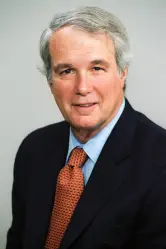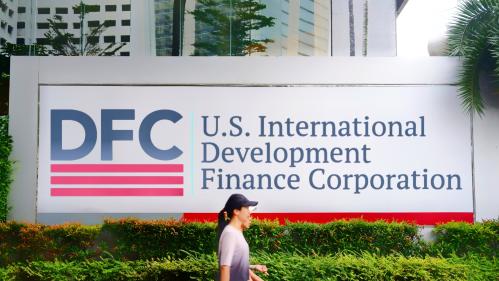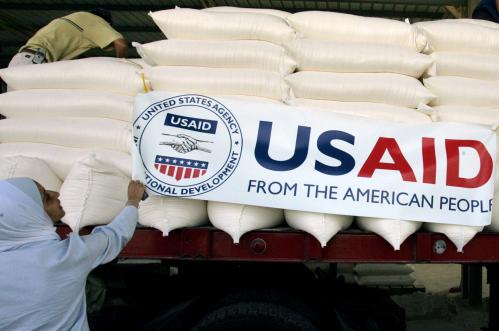The fight against global poverty has become a fight for global security.
The Status Report: Obama’s Commitment to Global Development

“Global development efforts must be fundamentally improved. Doing so will address American values and interests by reducing global poverty, supporting the emergence of more capable partners and mitigating transnational threats.”
Read more of Noam Unger’s update on this memo »
To: President-elect Obama
From: Colin Bradford and Noam Unger
Date: December 10, 2008
Re: Redefine America’s Global Development Cooperation
The Situation
America has made an awkward entrance into the 21st century. The biggest security threat to the United States has become the United States itself. The unilateralist foreign policy of recent years has generated opposition and weakened our global standing. At the same time, the financial crisis has increased doubts about whether globalization really has a human face. The challenge now is to reverse these trends and redefine America’s role in the world.
To effectively address global expectations, you must launch a fresh start to U.S. relations with the non-Western, developing world. Your approach should link a new international thrust with Americans’ hopes for a better future for themselves and for our interdependent world. You must usher in a new era of global cooperation by redefining the way the United States manages global challenges that affect the economic and security interests of every American.
Your Stance
Your commitment to embrace the Millennium Development Goals and make them America’s goals is a useful point of departure for renewed global cooperation on development. Additionally, you are now positioned to follow through on additional global development commitments you have made. They include:
- Eliminating the global education deficit, in part by establishing a global education fund and enacting the Education for All Act.
- Connecting our efforts to confront climate change with our strategy to alleviate global poverty.
- Creating a new fund for Small and Medium Enterprise in partnership with the private sector and applying that fund in support of your goal to end all malaria deaths by 2015.
- Continuing a strong U.S. role in the fight against HIV/AIDS, tuberculosis and malaria while increasing U.S. contributions to the Global Fund and leading a collaborative multi-stakeholder effort to improve health infrastructure in developing countries.
- Spurring research and innovation to bolster agricultural productivity and markets in poor countries.
- Reforming governance of the IMF and World Bank.
Your pledge to lead foreign assistance reforms is a fundamental cross-cutting issue and demands your sustained attention. It offers the chance for bipartisan support, since the platforms of both political parties called for foreign aid reforms and strengthened international development policies.
The sound investments you have proposed must be backed up by resources. Your support for increasing foreign assistance is particularly important since it a small part of the budget, but a part that is key to our global engagement and security. As the financial crisis unfolds, the world will be watching to see whether the United States fulfills its international commitments to poverty reduction. Now, in the face of global economic adversity, is precisely the time to honor our commitments in a way that motivates other donors and reinforces the critical message that in a globalized world, what happens in poor countries matters to the United States more than ever.
##1##
Recommendations
To reach the goals you laid out during the campaign, your policy must follow four broad principles.
Renew international cooperation. The United States cannot act alone or with a narrow band of “like-minded” governments. As you have articulated, the new American role is to bring the world together as you bring America together, to advance our “common security by investing in our common humanity.” Our approach to developing countries must be driven by a new thrust of American leadership toward international cooperation and coordination.
Ensure that the substance of U.S. foreign assistance echoes the priorities of the American people. The United States led the effort to redefine international development cooperation from an exclusive focus on economic policy and what came to be a doctrinaire commitment to market liberalization to the multi-sectoral approach embodied in the Millennium Development Goals. The Millennium Development Goals are aspirational goals tied to themes – healthy lives, educational opportunity, gender equality and economically and environmentally sustainable livelihoods – that resonate with people everywhere. The goals are also operational realities with specific, quantifiable targets, which virtually all nations are committed to meeting by 2015.
But in the past eight years, the United States has fudged its commitment by footnoting communiqués, foot dragging in inter-governmental conferences, and faking alignment with the MDGs by simply naming its new initiative the “Millennium” Challenge Account while not aligning its programs and policies with the MDGs. You can redefine America’s role with a commitment to these aspirational and operational goals. And you must prioritize consultation with Congress to build support for U.S. development cooperation, and bring our efforts more in line with those of nearly all large donor nations.
Mobilize American generosity and goodwill. You can redefine the idea of our government programs to mobilize and amplify the already generous efforts and instincts of the American people. Individual donations from the United States to the developing world have increased to roughly $26 billion a year, exceeding official development assistance. More than 50,000 Americans volunteer their time overseas each year. Our official development assistance efforts ought to leverage these private initiatives, and infuse U.S. foreign assistance programs with a wider array of Americans with special skills and talents to provide greater technical and professional capacities. Simply put, Americans want to help, and your government can lead the way.
Your administration can create platforms and flexible funding mechanisms within the U.S. foreign assistance apparatus to encourage collaboration among key stakeholders, including major philanthropists, high-profile advocates, multinational corporations and especially a vocal and energized public working through grassroots and faith-based networks.
Use every tool available, and coordinate internal efforts. Development cooperation with poor countries in concert with other donors does not exclusively pivot around aid. Reduction in trade barriers can stimulate exports that generate jobs, incomes and financial flows equivalent to and often more effective than aid flows. Debt reduction is a form of aid. Attracting capital flows, as emerging market economies demonstrate, replaces aid. We need policy coherence across these varied instruments to ensure that our efforts work positively in developing countries, rather than potentially working at cross-purposes. Many industrial countries use their ministers of development cooperation as a focal point for assessing policy coherence and for orchestrating and coordinating government efforts across departments and agencies. The U.S. government has no such focal point.
Further Recommendations
Elevate development to a cabinet-level department. Your administration has the promise and potential to provide the next great, seminal moment for America’s leadership in the world, along the lines of the immediate post-World War II period of international institutional innovation and the Kennedy years of inspiring overseas engagement. To redefine America’s role in the world, you will need to seize opportunities to call for and construct a new era of international cooperation.
Specifically, you will need a leader in your administration to meet the day-to-day policy challenges required to forge a new era of development cooperation and craft global development strategy. By focusing on the “4 C’s,” this official would lead coordination efforts with other international development actors, forge coherence among United States policies and instruments that affect the developing world, build the necessary capacity to effectively address 21st century development challenges and engage in close consultation with Congress and the broader community of key stakeholders inside and outside of government.
Therefore, the single most important move you can make is to appoint a widely recognized and respected American at the helm of a new cabinet-level Department for Global Development. As one of three pillars in the broadly accepted “3D” national security troika of defense, diplomacy and development, the last of the three should be elevated to equal standing, not just in rhetoric but in reality. Most other donor governments have ministers of development cooperation. We do not. More importantly, the profile of development in the American public mind is often overshadowed by short-term diplomacy or the urgency of defense requirements. Congress thinks of development as aid rather than as international cooperation.
Fusing the four strategic responsibilities of international coordination, policy coherence, capacity building and political and strategic consultation on global development matters will provide focus and momentum. Success requires a cabinet-level profile to credibly communicate that the United States is serious about ushering in a new era of international cooperation.
Without cabinet status, voice and volume cannot compensate for the lower-level profile accorded to development issues. Without independent standing apart from the State Department, our long-term investments in poverty alleviation, conflict prevention and democratization will continue to suffer from subordination to short-term political objectives. Without unified leadership accountable for our assistance to developing countries, our efforts will continue to be plagued by bureaucratic fragmentation and our investments will yield underwhelming impacts. By setting the vision and ultimately appointing an outstanding American as your Secretary for Global Development, you will give convincing evidence that “America is back” and ready to become a leader and a partner in a new era of international cooperation to address the major challenges of the 21st century.
Required Reading
-
U.S. Foreign Assistance: Reform to Lead in the 21st Century
Lael Brainard and Noam Unger, Los Angeles Times, June 16, 2008
-
Top 10 Global Economic Challenges Facing America’s 44th President
The Brookings Institution, October 2008
-
Global Development 2.0: Can Philanthropists, the Public, and the Poor Make Poverty History?
Lael Brainard and Derek Chollet, August 01, 2008
-
U.S. Foreign Assistance: Reinventing Aid for the 21st Century
Lael Brainard, House Subcommittee on State, Foreign Operations, and Related Programs, January 23, 2008
-
Foreign Assistance: Reform Now for Smart Power
Lael Brainard, The Brookings Institution, July 30, 2007
-
Foreign Assistance Reform: Then, Now and Around the Bend
Noam Unger, InterAction’s Monday Developments, July 2007
-
Foreign Assistance Reform: Successes, Failures, and Next Steps
Lael Brainard, Senate Committee on Foreign Relations, June 12, 2007
-
Executive Recommendations by the Brookings-CSIS Task Force for Transforming Foreign Assistance for the 21st Century
Lael Brainard, The Brookings Institution, Fall 2006
-
Security by Other Means: Foreign Assistance, Global Poverty, and American Leadership
Lael Brainard, February 01, 2006



